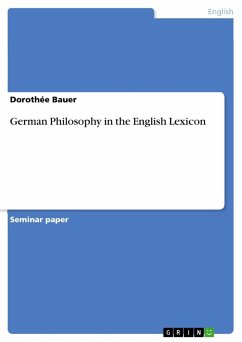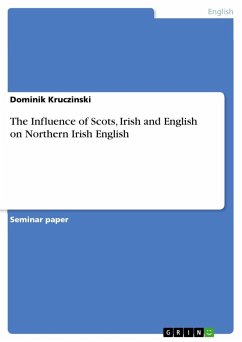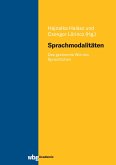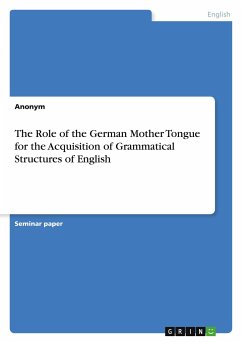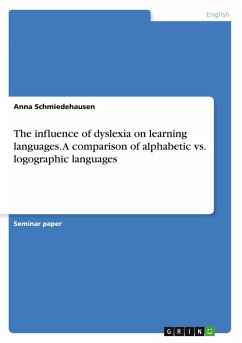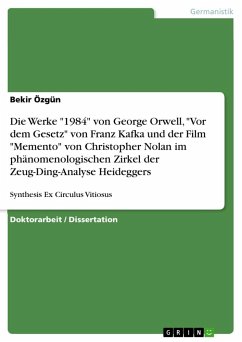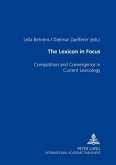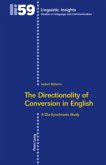Seminar paper from the year 2015 in the subject English Language and Literature Studies - Linguistics, grade: 1,7, University of Heidelberg, language: English, abstract: For centuries, language has been shaped by circumstances not only of great importance but also in accordance with the strength of resonance it has had with men. They encompass social and historical events as well as innovations of thinking, which can be understood as a product of persistence and the will to evolve as intelligent beings. Thereby, it has generated the coinage of lexical items in particular areas of a language and, furthermore, leading to influencing foreign languages through language contact. English as the world¿s most widely spoken language is a thesaurus of a range of philosophical German etymons as well as borrowings that have made their way into the English lexicon. The Age of Enlightenment as the turning point of the independent use of reason introduced a scientific revolution in Europe, which was to explain the natural world by promoting philosophy. The remarkable influence of philosopher Immanuel Kant (1724¿1804) within Idealism in the eighteenth century is noticeable within the set of new meanings to already existing vocabulary, and also sets the terms for much of the nineteenth and twentieth century. Others include Edmund Husserl (1859-1938), the founder of phenomenology, and Martin Heidegger (1889¿1976), two important German philosophers of the twentieth century, which had a major impact on new lexical items. In addition, Heidegger, as the chief leader of new compounds, introduced a special vocabulary of his own. This study examines the German philosophy and its impact on the English language over the centuries. There will be some lexical items which are rather frequently used in an everyday life context, and others which up to this time may appear rather unknown to the English speaker. In some cases there will be a more detailed analysis of the given lexical item owing to the specific usages and, also subsequently, to their varying meaning.
Bitte wählen Sie Ihr Anliegen aus.
Rechnungen
Retourenschein anfordern
Bestellstatus
Storno

